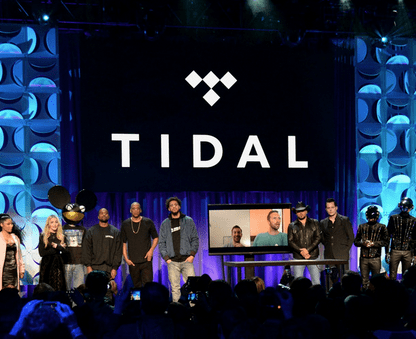
This week, President Barack Obama announced a series of executive actions on gun control, including expanding background checks. He even grew emotional during the announcement, tearing up while remembering the victims of the shooting at Sandy Hook Elementary in 2012.
It’s far from the first time Obama has spoken out about gun control. Earlier this summer, he let his irritation show while addressing the nation about the shooting at Emanuel AME Church in Charleston, South Carolina.
I’ve had to make statements like this too many times. Communities like this have had to endure tragedies like this too many times. We don’t have all the facts, but we do know that, once again, innocent people were killed in part because someone who wanted to inflict harm had no trouble getting his hands on a gun. Now is the time for mourning and for healing. But let’s be clear: At some point, we as a country will have to reckon with the fact that this type of mass violence does not happen in other advanced countries. It doesn’t happen in other places with this kind of frequency. And it is in our power to do something about it.”
Can Anything Really Be Done?
Americans make up less than 5 percent of the world’s population, but own between 35 and 50 percent of the world’s civilian-owned firearms. It’s not too difficult to draw a line from that statistic to the fact that we lead developed nations in gun-related homicides.
Despite this correlation, there’s always been a large and vocal majority fighting against any sort of reform in America’s gun control laws.
If you’ve ever attempted a conversation about gun control, you know there are few issues more volatile. These discussions devolve quickly—I’ve seen my share of innocent exchanges morph rapidly into one-sided screaming matches.
Here are six reasons Americans struggle to have a calm discussion about firearm regulation:
1. Gun Ownership Is Intrinsically Tied to the Idea of American Liberty
Americans still view themselves as the rebels who held off the British empire with principle, pluck and gunpowder. The revolution’s Gadsden flag, which features a coiled rattlesnake and the words “Don’t tread on me,” is nearly as popular today as it was 240 years ago.
The flag’s message still resonates profoundly with individuals who feel that, at any time, they may need to defend their freedom from a tyrannical government (or anyone else who would infringe upon their liberty). And the very real symbol that guarantees this freedom? That’s right, the gun. It’s no wonder that any discussion about controlling the citizenry’s access to firearms is instantly seen as an assault on individual liberty.
2. The Conversation Is Entrenched Before It Begins
It was the NRA that popularized the slogan “I’ll give you my gun when you pry it from my cold, dead hands.” The brilliance of rallying cries like this lies in how they directly appeal to the insurgent spirit of the American revolution. Who doesn’t want to see themselves as that Charlton Heston figure who’s willing to give up his life fighting for his freedoms?
Unfortunately, many of the loudest voices using this kind of rhetoric are only creating an environment where any compromise is seen as surrender.
3. Gun Control Is Seen as a Strictly Liberal Cause
Because of the binary nature of American politics, causes are consistently assigned to one partisan agenda or another. Any desire for stricter gun control legislation is simply associated with liberalism.
Immediately following the Charleston shooting, Republican Senator Ted Cruz made the statement, “I don’t think we should be using this tragedy to try and divide people and to try and seek partisan advantage.”
The implication is that the only reason you would respond to these regularly occurring tragedies by calling for a restriction on the tools consistently used in them is to further a liberal agenda, and no conservative wants to be associated with that. This means that many conservatives sympathetic to gun control will never acknowledge it.
4. There’s a Paranoia That Gun Control Is Just the First Step
Despite the fact that many who’d like to see a limit on high-capacity magazines and some semi-automatic rifles are also gun owners, there’s a genuine fear that gun control’s endgame is the confiscation of everyone’s guns and ammo.
It’s certainly a strange dichotomy that even though gun rights advocates tend to be extremely patriotic, they’re constantly worried that their government intends them harm.
5. Some Think Guns Maintain Civility and Safety
The hero of American cinema has always been the law-abiding citizen forced into violence to protect the ones they love. This image is woven into the mythology that the only thing protecting people from the roaming gangs of marauders who intend to harm families are guns.
This is why when 20 children are killed at Sandy Hook, the natural response is, “Arm the teachers.” When nine people are killed worshiping at their church in Charleston, an attorney for the NRA blames it on the pastor who opposed concealed carry legislation which would have protected them all. Gun advocates always argue that the answer to gun violence is more firearms, not less. This is tied to their belief that guns are the great equalizers in a world growing more and more violent.
Do you see the cyclical nature of the problem? The more gun violence we experience, the more convinced gun rights advocates are that they need firearms to protect themselves.
So when you suggest that someone should give up their right to a gun that fires 600 rounds per minute, they believe you’re asking them to give up their ability to protect their loved ones.
6. Gun-Control Supporters Can Be Incredibly Insulting and Smug
Lest one think that supporters of gun rights are solely responsible for the breakdown in communication, I’ve saved one of the biggest problems for last.
John Stewart-style takedowns might play well on Comedy Central, but they do nothing for real communication. The willingness for people to caricaturize second-amendment supporters as irrelevant backwoods rednecks widens the divide and diminishes the discussion.
President Obama did himself no favors when he dismissed job-related resentment in small-town Pennsylvania during a 2008 fundraising speech by saying, “And it’s not surprising then they get bitter, they cling to guns or religion or antipathy toward people who aren’t like them or anti-immigrant sentiment or anti-trade sentiment as a way to explain their frustrations.”
It’s sentiment like this that gun-control advocates are entirely too comfortable communicating because they believe they have the moral and ethical high ground. The run to firearm legislation amendment runs directly through the pro-gun demographic. You’d think that if people were serious about making changes, they’d work a lot harder at creating inclusive conversations.
No matter where we stand individually on the gun control issue, we’re going to need to learn to have rational discussions about our national problem.
This article was originally published on RELEVANTmagazine.com in June 2015. Updated January 7, 2016.






















